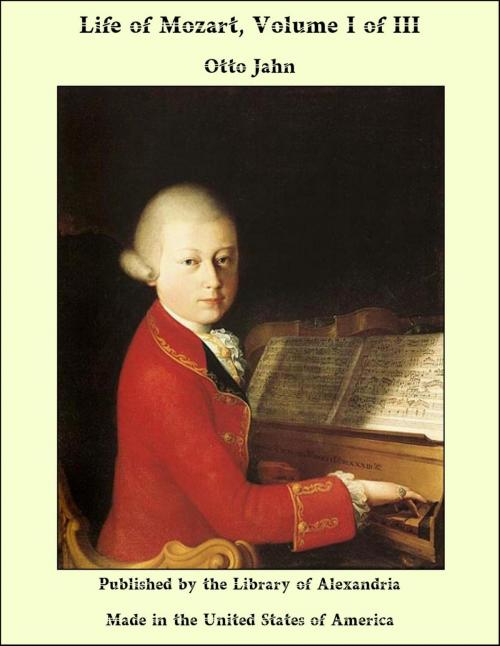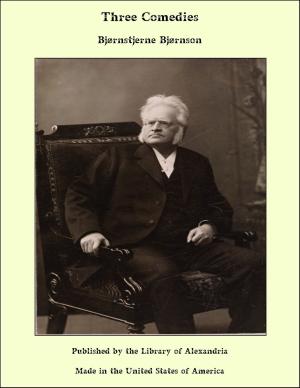Life of Mozart, Volume I of III
Nonfiction, Religion & Spirituality, New Age, History, Fiction & Literature| Author: | Otto Jahn | ISBN: | 9781465582300 |
| Publisher: | Library of Alexandria | Publication: | March 8, 2015 |
| Imprint: | Language: | English |
| Author: | Otto Jahn |
| ISBN: | 9781465582300 |
| Publisher: | Library of Alexandria |
| Publication: | March 8, 2015 |
| Imprint: | |
| Language: | English |
I HAVE been asked to say a few words by way of welcome to the translation of Jahn's Life of Mozart, and I do so with pleasure. The book has been long familiar to me, and I regard its appearance in an English dress as an event in our musical history. It will be a great boon to students and lovers of music, and it shows how much the study of music has advanced among us when so large and serious a work is sufficiently appreciated to repay the heavy expense attendant on its translation and publication. The book itself is what the Germans call an "epoch-making work." The old biographies of musicians, such as Forkel's Life of Bach (1802) and Dies's of Haydn (1810), are pleasant gossipy accounts of the outward life of the composers; but they concern themselves mainly with the exterior both of the man and his productions, and there is a sort of tacit understanding throughout that if the reader is a professional musician he will know all about the music, if he is an amateur it is altogether out of his reach. Characteristic traits and anecdotes there are in plenty, but as to how the music was made or came into being, what connection existed between it and the circumstances or surroundings of the composer, what relation it had to that of his predecessors or contemporaries, how far the art was advanced by the labours of this particular composer or player—all that is outside the province of the book. Schindler's Life of Beethoven (Münster, 1840—a much smaller book than it afterwards became) was hardly more than this, and in addition is so deformed by want of method and by faults of style as to be very uninviting to the reader. A step in the right direction was taken in Moscheles' English translation (or rather adaptation) of Schindler (1841). Moscheles' residence in London had shown him that there was even then a public outside the professional musician to whom such works would be interesting, and he accordingly took pains, by inserting musical examples and other means, to make his edition attractive to this class. But the inherent defects of the original work prevented more than a moderate success.
I HAVE been asked to say a few words by way of welcome to the translation of Jahn's Life of Mozart, and I do so with pleasure. The book has been long familiar to me, and I regard its appearance in an English dress as an event in our musical history. It will be a great boon to students and lovers of music, and it shows how much the study of music has advanced among us when so large and serious a work is sufficiently appreciated to repay the heavy expense attendant on its translation and publication. The book itself is what the Germans call an "epoch-making work." The old biographies of musicians, such as Forkel's Life of Bach (1802) and Dies's of Haydn (1810), are pleasant gossipy accounts of the outward life of the composers; but they concern themselves mainly with the exterior both of the man and his productions, and there is a sort of tacit understanding throughout that if the reader is a professional musician he will know all about the music, if he is an amateur it is altogether out of his reach. Characteristic traits and anecdotes there are in plenty, but as to how the music was made or came into being, what connection existed between it and the circumstances or surroundings of the composer, what relation it had to that of his predecessors or contemporaries, how far the art was advanced by the labours of this particular composer or player—all that is outside the province of the book. Schindler's Life of Beethoven (Münster, 1840—a much smaller book than it afterwards became) was hardly more than this, and in addition is so deformed by want of method and by faults of style as to be very uninviting to the reader. A step in the right direction was taken in Moscheles' English translation (or rather adaptation) of Schindler (1841). Moscheles' residence in London had shown him that there was even then a public outside the professional musician to whom such works would be interesting, and he accordingly took pains, by inserting musical examples and other means, to make his edition attractive to this class. But the inherent defects of the original work prevented more than a moderate success.















